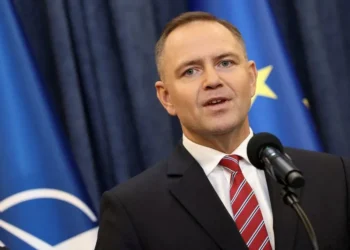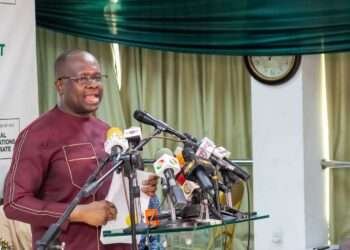President of the Ghana Union of Traders Association (GUTA), Dr. Joseph Obeng, has disclosed that, Nigeria’s decision to reopen its borders for trade is largely due to an economic recession in the country.
According to him, its decision to open borders only proves his point that, indeed, no country desirous of expansion and growth in their economy can operate as an island.
“Their economy is trembling. Nigeria is in recession, their action has affected them negatively. This decision to reopen borders further confirms my argument that no country can operate or trade in isolation. It must be a lesson to them,” he stated.
With the implementation of the closure of the Nigeria-Benin border, Ghanaian exporters were left in griping pain as it had tremendous impact on trading activities as well as profit margins.
These traders labeled Abuja’s decision to continue shutting its border as needless and un-African. On the contrary, Nigeria claims the border closure has spurred local production and reduced arms smuggling.
As it stands now, the Nigerian government insists there will be a reopening of the border only if Benin meets all thirteen of stipulated trade conditions.
The news on its reopening was initiated by Nigeria’s President, Muhammadu Buhari. The announcement was made during a meeting with governors on the platform of the ruling All Progressives Congress (APC) in Abuja.
As food prices witnessed inflation, sources say Nigeria showed its willingness to re-open the border last month with increased calls for reopening of the borders, a recurring phenomenon.
The Executive Secretary of the Ghana International Trade Commission (GITC), Frank Agyekum, also on his part, lauded the decisionk made by President Buhari.
“Unfair trade practices sometimes happen among members of an economic bloc as ECOWAS; the more reason for dialogue and negotiations. We welcome this intent by Buhari but consensus building and trust is all that matters now especially as we gear up to the AfCFTA in 2021″.
In the meantime, Prince Boakye, the Public Relations Office of the Ministry of Trade and Industry, mentioned that President Buhari’s resolve does go a long way in ensuring the implementation of the African Continental Free Trade Agreement a success.
“Gradually, we know that our negotiations with Nigeria paid off. We welcome the news of his intent”.
When the border closure happened, the Economic Community of West African States (ECOWAS) appealed to the Nigerian government to reopen its borders.
It warned that the partial closing of border crossings to Benin and Niger, which prevents the free movement of people, is a violation of agreements signed by Nigeria.
“The closure of the Nigerian borders with Benin more than a month ago, and [with] Niger more recently, [are] a hindrance to the achievement of the Community’s main objective, which is to achieve the creation of a prosperous, borderless West African region where peace and harmony prevail,” the speaker of the Parliament, Moustapha Cisse Lo, intimated then.
Since taking office in 2015, President Muhammadu Buhari has introduced policies aimed at boosting local agricultural production and reducing its dependence on crude oil, which provides some 90% of its foreign exchange.





















